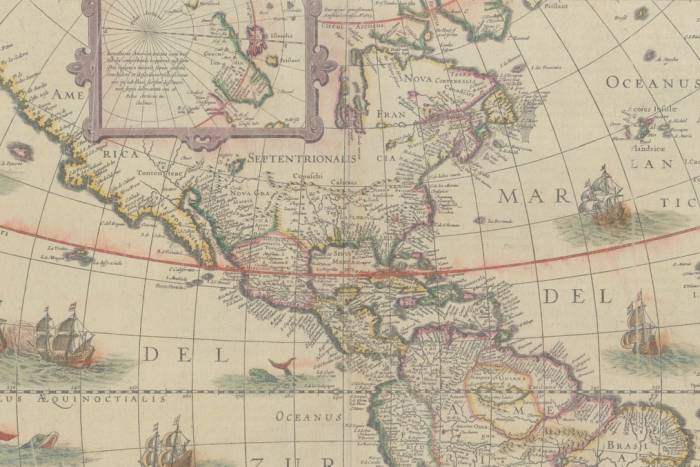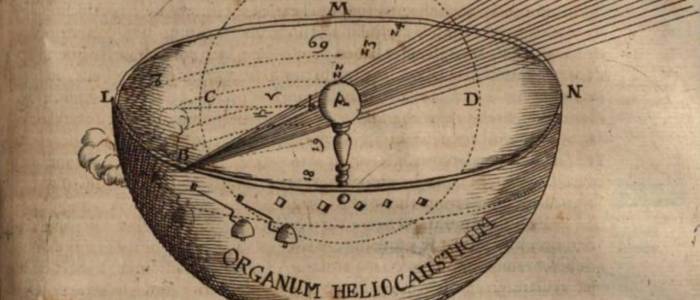Mysticism Vs. Science: Conversation Between Krishnamurti And David Bohm
The philosopher and the eminent American scientist got together on several occasions during the 80s to confront different points of view surrounding the mind and the future of mankind.
Jiddu Krishnamurti promulgated total freedom, not tied to any belief, dogma or religions, and during his conferences he also denounced the role of the guru which he was never able to free himself from. His was an invitation to use inner change as the basis of our own freedom, radically breaking away from imposed patterns, from the programming we are all subjected to during our “education”. For Krishnamurti, being free meant freeing the conscience from all the conditioning in order to see and feel the world in its original purity again.
His reflections surrounding meditation are still revealing: meditation could not, according to him, be systematized as a discipline, since this would make it conditioned; by setting it as a concrete practice, as an established technique, susceptible to being learnt, could not, according to him, lead to awakening. To meditate is to perceive the world in its full amazing reality, it is to live constantly in a vast sense of surprise, and this cannot be attained by through mortification or discipline; the change is imminent and the search for a gradual awakening is nothing other that one of the many forms of deceit that our mind submits us to.
In order to test these revelations, Krishnamurti did not hesitate to talk to some of the most advanced minds of his time. His need to communicate with as many people as possible led him to participate in debates and televised discussions, where he always displayed an extraordinary ability to listen and a refined virtue for analysis and interaction. The results of this attitude were his famous conversation with Doctor David Bohm, professor of theoretical physics. During one of these, Krishnamurti and Bohm imagine and explore, through the dialectic practice, to come to a number of revelations describing the future of humankind. A mystic and a theoretical physicist join forces to shed some light on the unhopeful future of a world overrun by war, tyrannies and natural disasters.
In the midst of their synchrony, despite their diametrically opposite ways of thinking, Krishnamurti and Bohm would touch upon key issues that could substantially improve the world, which for Krishnamurti forcefully had to pass through the sieve of psychology. Change can only be possible if we understand that there is no psychological evolution (whereas physical evolution does exist). Change is “now”, and any desire to improve “over time” is destined to fail; while we set out to be fairer, sincere or kind, we continue to be unfair, liars and mean, and change is infinitely postponed because of the illusion of psychic evolution, that is to say, of a psychological time. If there is no time, which Krishnamurti asserts despite Bohm’s perplexity, then change is imminent, instant and humanity has indefinitely postponed this change because of an illusion that its own mind has created. To understand this —not just intellectually— is an essential condition for a true change of consciousness.
The conversation between the wise Hindu and the American scientist conveys a hopeful future where individual change will be the coming of a new world, the change which Krishnamurti tirelessly worked for in his constant conferences and talks, until he passed away in 1986, fulfilling, perhaps without knowing it, the destiny that was imposed on him while he played with his beloved brother at the edges of the Madras River.
Change is now, he tells us, there is no “psychological tomorrow”, and in it is in our hand to make it happen to enable a change in humankind. Will we be able to make his message a reality?
Related Articles
When ancient rituals became religion
The emergence of religions irreversibly changed the history of humanity. It’s therefore essential to ask when and how did ancient peoples’ rituals become organized systems of thought, each with their
Seven ancient maps of the Americas
A map is not the territory. —Alfred Korzybski Maps are never merely maps. They’re human projections, metaphors in which we find both the geographical and the imaginary. The cases of ghost islands
An artist crochets a perfect skeleton and internal organs
Shanell Papp is a skilled textile and crochet artist. She spent four long months crocheting a life-size skeleton in wool. She then filled it in with the organs of the human body in an act as patient
A musical tribute to maps
A sequence of sounds, rhythms, melodies and silences: music is a most primitive art, the most essential, and the most powerful of all languages. Its capacity is not limited to the (hardly trivial)
The enchantment of 17th-century optics
The sense of sight is perhaps one the imagination’s most prolific masters. That is why humankind has been fascinated and bewitched by optics and their possibilities for centuries. Like the heart, the
Would you found your own micro-nation? These eccentric examples show how easy it can be
Founding a country is, in some ways, a simple task. It is enough to manifest its existence and the motives for creating a new political entity. At least that is what has been demonstrated by the
Wondrous crossings: the galaxy caves of New Zealand
Often, the most extraordinary phenomena are “jealous of themselves” ––and they happen where the human eye cannot enjoy them. However, they can be discovered, and when we do find them we experience a
Think you have strange reading habits? Wait until you've seen how Mcluhan reads
We often forget or neglect to think about the infinite circumstances that are condensed in the acts that we consider habitual. Using a fork to eat, for example, or walking down the street and being
The sky is calling us, a love letter to the cosmos (video)
We once dreamt of open sails and Open seas We once dreamt of new frontiers and New lands Are we still a brave people? We must not forget that the very stars we see nowadays are the same stars and
The sister you always wanted (but made into a crystal chandelier)
Lucas Maassen always wanted to have a sister. And after 36 years he finally procured one, except, as strange as it may sound, in the shape of a chandelier. Maassen, a Dutch designer, asked the










